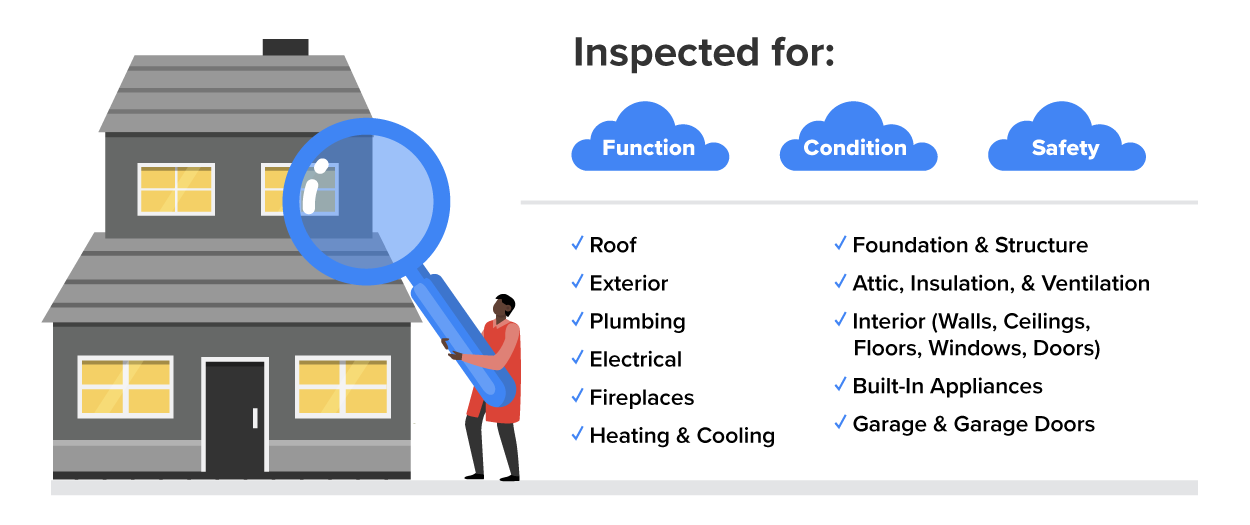Table of Contents |
When buying a home, you’ll likely encounter several real estate professionals, each playing a vital role in guiding you through the process. These individuals act as your advocates, advisors, and negotiators, helping you navigate the often-complex journey of purchasing a property. But what exactly do real estate agents and brokers do, and how do they differ? Let’s break it down with examples to help you better understand their roles and how they contribute to making your dream home a reality.
Before diving into specifics, it’s important to note that real estate professionals work in a structured ecosystem. Here are the key players:
1. Facilitators and Guides
Real estate agents are your go-to resource for understanding the home buying process. They educate you on market trends, pricing, and the steps you’ll need to take to secure a home. Think of them as a GPS for your real estate journey.
EXAMPLE
Imagine you’re a first-time buyer overwhelmed by the options in your area. Your real estate agent sits down with you, explains the types of properties available (condos, single-family homes, and townhouses), and helps you determine what fits your budget and lifestyle. They also take you out to see homes that are within your budget.2. Market Experts
Agents have intimate knowledge of the local market. They know which neighborhoods are up-and-coming, where the school districts are strong, and what price range is reasonable for the area. Let’s say you’re considering a home in a neighborhood you like, but you’re unsure if it’s overpriced. Your agent compares it to recent sales of similar homes nearby (a process called a comparative market analysis or CMA) and tells you whether the price is fair.
3. House Hunters
Once a real estate agent understands your needs and budget, agents help you find properties that match your criteria. They schedule showings, accompany you to open houses, and provide insights on the pros and cons of each property.
EXAMPLE
Let’s say you want a home with three bedrooms, a big backyard, and a two-car garage. Your agent filters through listings, saving you hours of scrolling online, and sets up tours for houses that meet your criteria.4. Negotiators
When it’s time to make an offer on your new home, agents act as your advocate. They draft the offer, negotiate with the seller (or their agent), and help you get the best deal possible. Since they have intimate knowledge of the process, they can help you navigate it with ease.
EXAMPLE
You find your dream home listed at $350,000. Your agent notices that the roof needs repairs, so they negotiate a lower price of $340,000 or request the seller cover the repair costs.5. Problem-Solvers
Agents don’t just show homes; they’re also your point person for tackling issues that arise. From handling home inspection results to smoothing over disputes between buyers and sellers, agents ensure the process stays on track.

Real estate agents play a huge role in making the home buying process easier, but not all agents are the same. That’s where buyer’s agents come in—they’re like your personal guide, focused entirely on helping you find the right home and getting the best deal. Let’s break down why having a buyer’s agent on your side can make all the difference.

While all real estate agents assist buyers, a buyer’s agent is specifically tasked with protecting your interests during the transaction. Their job is to look out for you as the buyer. Let’s say you’re moving to a new city and don’t know the area well. Your buyer’s agent introduces you to neighborhoods that fit your lifestyle, recommends trusted inspectors, and ensures you don’t overpay for your new home.
Here are some key responsibilities of buyer’s agents:
On the flip side, seller’s agents represent the person selling the home. Their primary role is to market the property and get the best price for their client. The seller’s agent will also negotiate with the buyer’s agent during the home buying process.
Here are some key responsibilities of seller’s agents:
EXAMPLE
A seller’s agent lists a home for $400,000. They highlight its features in the listing description, hire a professional photographer to take photos, and host open houses to attract buyers. When offers come in, they advise their client on which is the most favorable and help negotiate the best price with the buyer’s agent.Seller’s agents work closely with homeowners, but behind the scenes, brokers play an even bigger role. They oversee the entire process, ensuring everything runs smoothly and all legal and financial details are handled properly. Let’s take a closer look at what brokers do and how they fit into the real estate puzzle.
Now that you have an understanding of buyer’s and seller’s agents, let’s look at brokers and their role. Brokers are a step above agents in terms of qualifications and responsibilities. They’ve completed additional training and exams and often oversee transactions to ensure compliance with legal and ethical standards. Some brokers actively work with clients, while others manage a team of agents.
Here are some key responsibilities of brokers:
EXAMPLE
A broker manages an office of real estate agents, ensuring they adhere to state laws and company policies. When an agent encounters a complex transaction, the broker steps in to provide guidance.Selling your home is a big decision, and having the right real estate professional by your side can make all the difference. Whether you’re buying, selling, or both, choosing the right agent is key to a smooth and successful experience. Let’s explore how to find someone who’s the perfect fit for your needs.
Picking the right real estate agent is a game changer, especially if it’s your first time buying a home. A great agent can guide you through the process, make things less stressful, and help you land the right house, while the wrong one could leave you overwhelmed or missing out on great deals. Here’s a simple guide with four key questions to ask, tips you can use, and what to look for to find the perfect match.
1. Ask for Recommendations
Start by leveraging your network. Friends, family, or colleagues who’ve recently bought or sold a home can be excellent resources for referrals. Their firsthand experiences can provide valuable insights into what it’s like to work with a particular agent.
Questions to Ask Your Friends and Family:
2. Check Credentials
Once you’ve got a list of potential agents, it’s time to do a little homework. Make sure they’re licensed (so you know they’re legit) and check how much experience they have—it’s a good sign they really know the local market and can guide you through the process like a pro.
Key Credentials to Look For:
Once you know their credentials, here are some questions to ask:
3. Interview Potential Agents
Choosing a real estate agent is like hiring someone for an important job—you want to make sure they’ve got the skills, experience, and vibe that match what you need. Treat your first meeting like an interview, and come prepared with questions to see if they really get what you’re looking for and know their stuff.
Questions to Ask During the Interview:
4. Trust Your Gut
Buying your first home is a big deal—both emotionally and financially—so you need someone in your corner who gets it. Your agent should make you feel at ease, really listen to what you want, keep you in the loop, and stick to your budget without any pressure.
Signs You’ve Found the Right Agent:
Picking the right real estate pro comes down to finding someone who really gets what you need, keeps you in the loop, and knows how to make things happen. Go with your gut, ask questions, and don’t settle until you feel like you’ve got someone who’s 100% in your corner.
Source: THIS TUTORIAL WAS AUTHORED BY SOPHIA LEARNING. PLEASE SEE OUR TERMS OF USE.